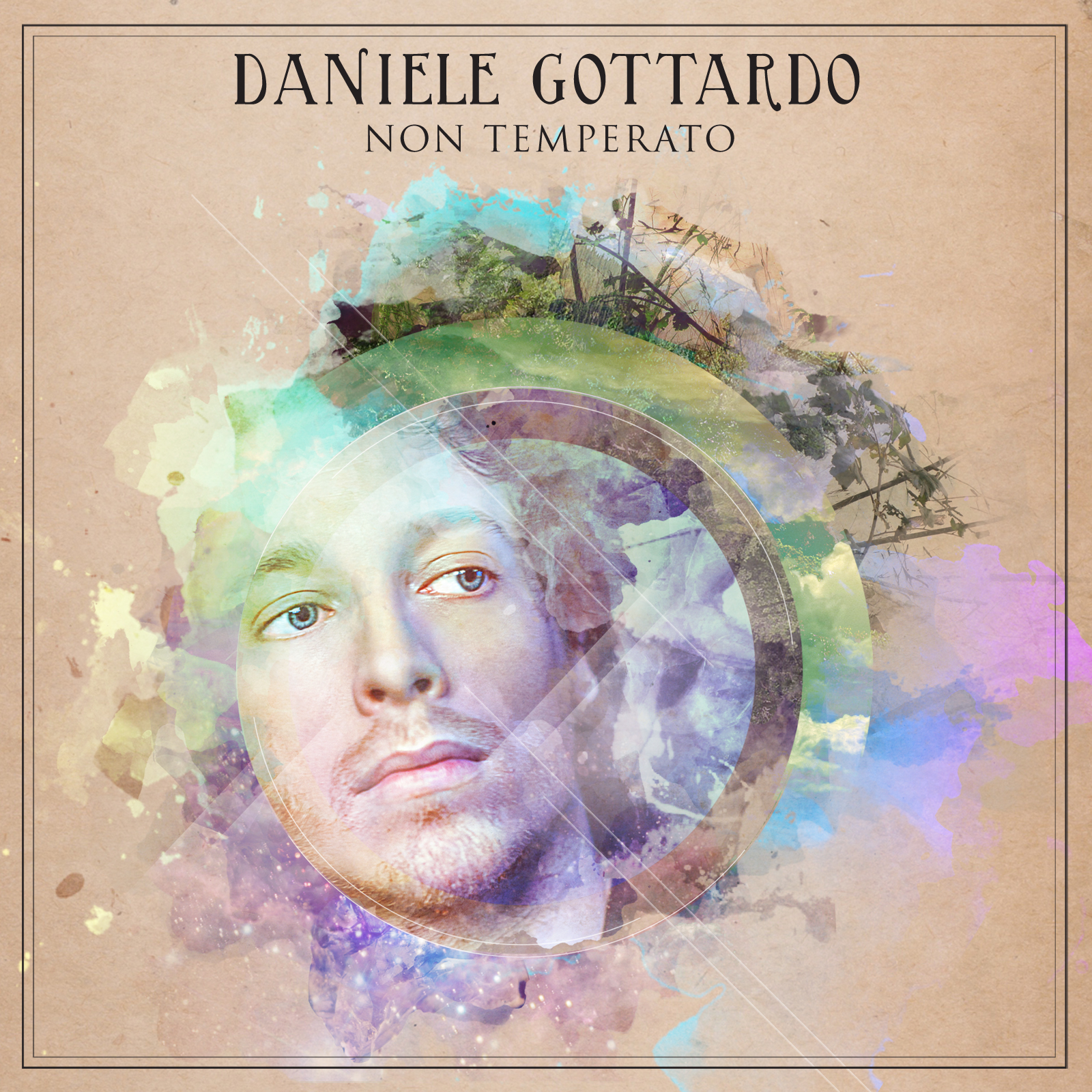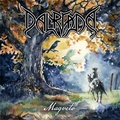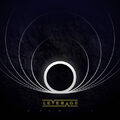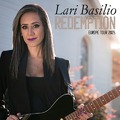Daniele Gottardo: Non Temperato (2014)

Vesszőparipám, és mint ilyen, leírtam már sokszor, de most is megismétlem. A klasszikus és szórakoztató zene éles megkülönböztetése, a zenei fúziók miatt napjainkra meglehetősen okafogyottá vált, a teljesen idétlen magyar szóhasználat (könnyű-és komolyzene) pedig eleve egy vicc, ami korlátoltságában kizárólag a Bartók Béla-Aradszky Laca tengelyen képes a zenét értelmezni, kár is rá szót vesztegetni.
Itt van pl. az olasz gitáros forma, Daniele Gottardo, akit leginkább az instrumentális rockgitárosok között lehetne a neten fellelni, Guthrie Govan, Kotzen, Greg Howe társaságában, noha a lemezen található muzsikának sokkal több köze van a XIX.-XX. század klasszikus zenéjéhez, mint a rockhoz.
A zenét hallgatva nem egy szögekkel kivert csuklószorítós, égre emelt kéz, hanem sokkal inkább egy hangversenyterem fog megjelenni lelki szemeink előtt, és ezzel sajnos kb. ki is esett néhány százezer fő a merítésből, akik szóba jöhetnek, mint potenciális hallgatók, lemezvásárlásról pedig már beszélni sem nagyon merek…
Akik ebben a muzsikában nagyon szeretnének elmélyedni, és minden pillanatát csodálattal hallgatnák, azok nem fognak rátalálni Daniele-re, mert fogalmuk sincs, hogy létezik a rock szcénában az igényességnek ez a szintje, a rockerek pedig – minden tiszteletünk mellett – ha már elektronyos gitárról van szó, nem igazán erre a megközelítésre zsizsegnek. Nekik azért kell a dzsidzsi… Úgyhogy kevesen maradtunk, de szerintem ezzel Daniele tökéletesen tisztában van, más kérdés, hogy valahol ez azért közte van a legnagyobb igazságtalanságoknak itt e Földön.
Azt kell mondjam, nagyon kár mindezért, mert az egyik legizgalmasabb instrumentális gitárlemez, amit az utóbbi időben volt szerencsém hallani. Több mint egy évig tartottak a stúdiós munkák, ami nem véletlen. Nem egyszerű dolog vonósokat és egyéb klasszikus hangszereket felvenni, a legtöbben nem is igazán bajlódnak ezzel, megoldják okosba’, baba kis zenei szoftverekkel az egészet, ráadásul töredék költségért. Ez azért sokat elárul Gottardo igényességéről, pedig még a zenét nem is hallottuk.
A muzsika egészét nézve kiindulási alap lehet talán Jason Becker "End Of the Beginning" című mesterműve (amit Daniele – a facebook oldalán olvasható Jason Becker bejegyzés szerint a mester őszinte megelégedésére – el is játszik ITT). Még abban is hasonló, hogy Gottardo is hasonlóan könnyedén, azzal az egyszerre folyékony és hajlékony stílusban lakja be a gitárnyakat, mint ott Michael Lee Firkins. És hogy még tovább veszítsünk a máris maroknyi potenciális támogatókból, azt azért el kell mondani, hogy az "End Of The Beginning" relatív slágerességéből, itt nem sok található.
Ez a késő-romantika korabeli zenei gondolkodás nagyban merít a XX. századra jellemző disszonanciából is, amely a nem edzett füleknek azért inkább nehezíti, mintsem megkönnyíti a befogadást. De ettől a lényeg nem változik. Az utóbbi évek egyik legegyénibb, legjobb, legizgalmasabb instrumentális lemeze.
Túrisas
Daniele Gottardo: Non Temperato (2014)
It is one of my recurring topics, and as such I have written about it a hundred times, but once again I feel compelled to repeat: in our days the sharp distinction between classical and modern “popular” music – due to their more and more frequent fusion – has by now become more or less fatuous and groundless. These categories should not be set against each other in an irreconcilable dichotomy.
Here we have, for instance, an Italian guitar player, Daniele Gottardo, whose name will most likely feature on the internet among such artists as Guthrie Govan, Richie Kotzen, Greg Howe etc., although his compositions have probably more in common with the classical music of the 19th and 20th centuries than with rock music.
As we listen to his album, what will appear before our mind’s eye is not a tightly clasped iron fist or a headbanger dressed in denim and leather but rather a spacious, well-lit concert hall. With this introduction the audience has already become considerably smaller, not to mention the potential paying customers.
It is likely that only a few of those who understand and appreciate this kind of music will ever find Daniele because they simply do not know that this high level of musicianship exists among rock players, while the "true" metal fans will sorely miss the easily accessible heavy riffs they so closely associate with their favourite genre. It does not seem pessimistic to say that few people will even give a chance to this material. My guess is that Daniele is well aware of this but it does not change the fact that it is still among one of the biggest injustices of the world.
I have to say it is a real pity because it is one of the most exciting instrumental guitar albums I have had the fortune to hear in the past few years. The studio work lasted for over a year and I can very well understand that. It is quite difficult (and expensive) to record string instruments and classical arrangements. Most artists – in order to save time and money – just have easy recourse to samplers. This fact alone speaks volumes to us about how seriously Daniele takes his music!
If we try to find helpful comparisons, we may be able to quote Jason Becker's "End Of the Beginning" (Perspectives, 1996). The similarity is also found in Daniele's playing: his fluent style and flexible technique reminds us of what Michael Lee Firkins did in that song. We do, however, need to add that the relative catchiness of Becker's composition is not to be found in Daniele's more abstract, more contemporary album.
His musical mentality, imbued with the late romantic period, also relies on the sensibilities of some 20th century "contemporary" composers whose "post-tonal sound" is not easily accessible (may sometimes even appear dissonant) to the untrained ear. This does not change the essential content of what I am trying to say: this is one of the best, most exciting and inventive instrumental guitar albums I have heard in a long time.
(English version by Tartuffe)





